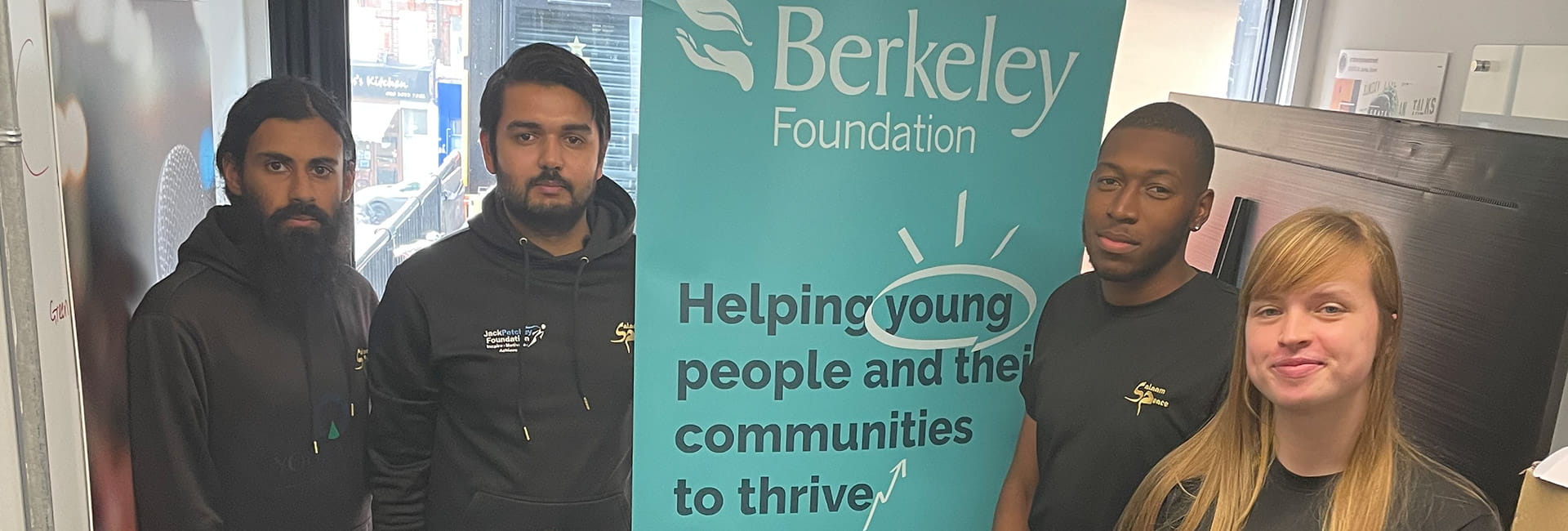As a funder of services for young people, youth participation has been an important aspect of the Berkeley Foundation’s grant-making over recent years. We have made grants to participatory action research projects, supported charities to implement youth involvement strategies, and funded youth advisory boards.
Alongside this, our 2030 strategy includes a commitment to enable young people to play an active role in our own work. One of the ways we are exploring this is through participatory grant-making – involving young people in decisions about how our funding is awarded.
This year, we worked with a group of young people from our charity partner Salaam Peace to make funding recommendations for the second year of our Resilience Fund – focused on charities working with young people from Black and minoritised communities.
Salaam Peace uses sport and social education to bring together people from diverse backgrounds and improve community cohesion in Waltham Forest, Hackney, Haringey and Newham.
All current staff at Salaam Peace started their journey as participants of the programme, before progressing into volunteering and employment. In addition, 80% of staff and volunteers are aged 14-25, which makes them a genuinely youth-led organisation with expertise in involving young people in decision-making.
Deputy CEO Azi Mohammed supported us to facilitate Youth Panel sessions in which participants felt comfortable to share honest feedback based on their experiences, and those of the other young people they work with. After reviewing the full grant applications and budgets from shortlisted charities, the young people scored the applications and made funding recommendations.
Khunais Ahmed from Salaam Peace commented:
“I had no experience in anything like this before so I found the panel really insightful. The applications were intriguing and despite a daunting and challenging decision to score them, it was really fun.”
Azi, who started his own journey with Salaam Peace when he was 11, also participated in our external assessment panel made up of representatives from our partner charities. They provided their own insights as service providers, and were led by feedback from the Youth Panel to make final funding recommendations. Of the 10 charities recommended by the Youth Panel, 8 were ultimately funded.
We believe that involving young people in this way improves our decision making; bringing insight and expertise into our decision making that we would otherwise lack.
We continue to learn from this work, and will be developing our approach further over the coming months, working with young people with lived experience of homelessness to inform the design of the Resilience Fund’s third year.
